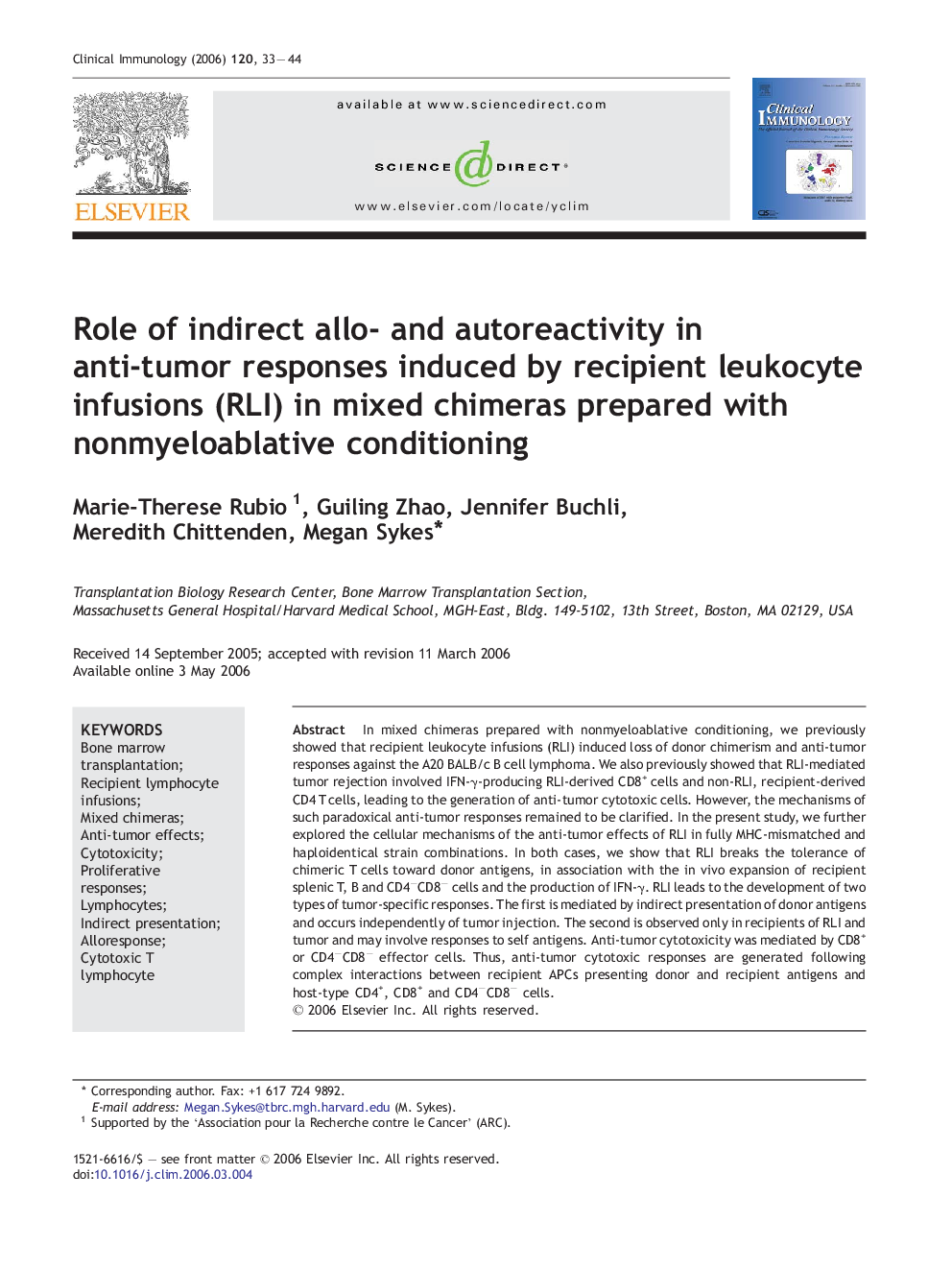| Article ID | Journal | Published Year | Pages | File Type |
|---|---|---|---|---|
| 3258731 | Clinical Immunology | 2006 | 12 Pages |
Abstract
In mixed chimeras prepared with nonmyeloablative conditioning, we previously showed that recipient leukocyte infusions (RLI) induced loss of donor chimerism and anti-tumor responses against the A20 BALB/c B cell lymphoma. We also previously showed that RLI-mediated tumor rejection involved IFN-γ-producing RLI-derived CD8+ cells and non-RLI, recipient-derived CD4 T cells, leading to the generation of anti-tumor cytotoxic cells. However, the mechanisms of such paradoxical anti-tumor responses remained to be clarified. In the present study, we further explored the cellular mechanisms of the anti-tumor effects of RLI in fully MHC-mismatched and haploidentical strain combinations. In both cases, we show that RLI breaks the tolerance of chimeric T cells toward donor antigens, in association with the in vivo expansion of recipient splenic T, B and CD4âCD8â cells and the production of IFN-γ. RLI leads to the development of two types of tumor-specific responses. The first is mediated by indirect presentation of donor antigens and occurs independently of tumor injection. The second is observed only in recipients of RLI and tumor and may involve responses to self antigens. Anti-tumor cytotoxicity was mediated by CD8+ or CD4âCD8â effector cells. Thus, anti-tumor cytotoxic responses are generated following complex interactions between recipient APCs presenting donor and recipient antigens and host-type CD4+, CD8+ and CD4âCD8â cells.
Keywords
Related Topics
Life Sciences
Immunology and Microbiology
Immunology
Authors
Marie-Therese Rubio, Guiling Zhao, Jennifer Buchli, Meredith Chittenden, Megan Sykes,
